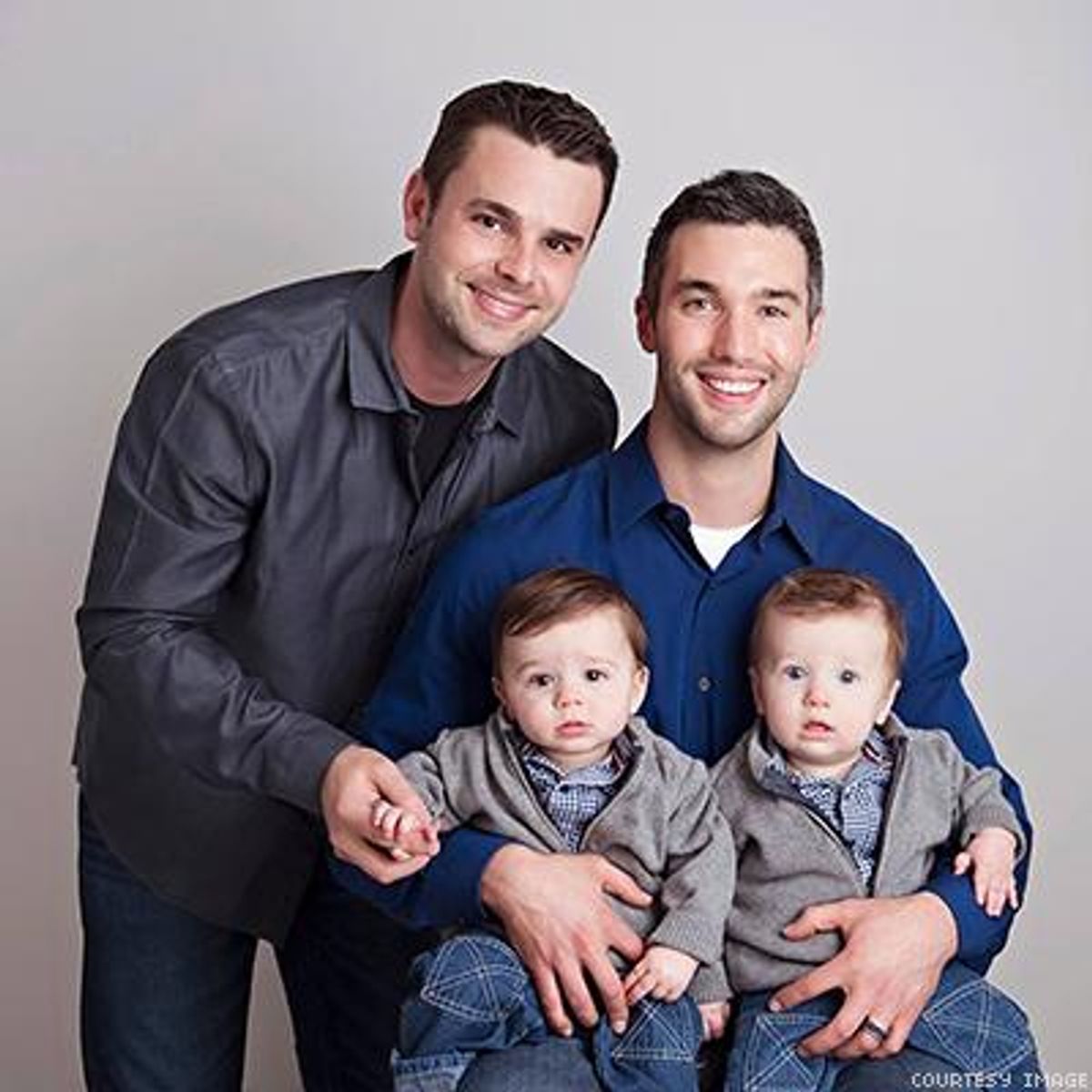A legally married gay couple who were embroiled in a lengthy effort to co-adopt their biological twin sons less than a year ago are facing another challenge due to Texas's discriminatory laws denying marriage rights to same-sex couples.
Jason Hanna and Joe Riggs, parents of 9-month-old twin boys, began the early stages of planning their second surrogacy by contacting Dallas/Fort Worth Fertility Associates Monday. Hanna and Riggs said they wanted to use a new clinic, which was closer to their home in Plano than the clinic that facilitated the birth of twins, which was more than an hour away in Fort Worth.
The phone conversation began with Hanna speaking to the clinic's office manager, he told The Advocate. After the manager explained the general breakdown of the potential expenses the couple would pay for a gestational carrier, Hanna was connected with a nurse coordinator.
"I explained that we were looking for a second surrogacy and we had a conversation for several minutes," Hanna said. "Then she asked why we are seeking a gestational carrier and I told her that we are a same-sex couple. I was immediately put on hold for about three to five minutes. Then the woman from the front desk finally picked up the line and began to tell me that they only service married couples.""
Hanna said he responded by telling the nurse he and Riggs were married (in Washington, D.C.). He said the nurse then apologized and stated this was not her personal view, but it the view of the doctors.
Hanna said he then called IVFMD, another prominent clinic that specializes in surrogacy.
"I asked a handful of questions to the person who answered the phone and she said that I needed to speak with the office manager," said Hanna. "Then I asked her if they service same-sex couples and she said no. She added that they have served same-sex female couples, but not male couples."
The same office manager for Dallas/Fort Worth Fertility Associates verified to The Advocate that the clinic did not provide services for same-sex couples. When pressed for clarification as to whether the clinic provides the service of implanting an embryo into a surrogate, the manager curtly said no, adding that while the clinic does offer this service, it is only available to couples who are legally married in the state of Texas. When asked if that service would be extended to a same-sex couple if their marriage were legal in Texas, she said the clinic would need to review their policy if the law changed.
Tina Vu, IVF coordinator for IVFMD, would not tell The Advocate why the clinic's policy did not allow services for same-sex male couples or single males. She just said that it was decided on when the practice first opened, and although it may not reflect what she believes, it is current policy.
This is not the first time Hanna and Riggs experienced discrimination in Texas regarding their right to parent. Although Hanna and Riggs are biological fathers to each of their twins, when they applied for co-adoption, a judge initially denied their request. After several months, the couple won their parental rights and recognition as parents on their sons' birth certificates from a new judge.
The city of Dallas passed a mandate in 2002 that expanded its nondiscrimination ordinance to include citywide protection against discrimination based on sexual orientation and gender identity. Marital status, however, is not a protected characteristic, and since Texas still does not recognize same-sex marriage, clinics like Dallas/Fort Worth Fertility Associates are free to discriminate against same-sex couples and their families.
The Fifth Circuit Court of Appeals will soon issue a decision on challenges to marriage bans in Louisiana, Texas, and Mississippi. If the Fifth Circuit overturns such ban, clinics like Dallas/Fort Worth Fertility Associates would face legal ramifications if they chose to continue their discriminatory policies.
Hanna and Riggs have options for their next surrogacy, but they say they will have to choose a practice that is willing to work with an "unmarried" gay couple.












































































